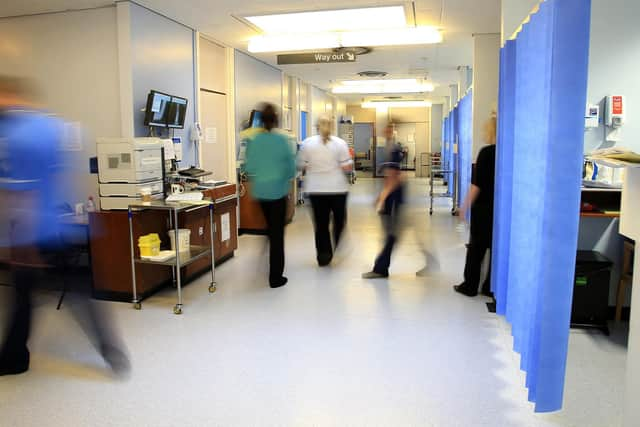Leeds hospitals face £4m jump in bills to keep everything running this winter
and live on Freeview channel 276
An article, published in the British Medical Journal, warned patient care could be compromised without action from the Government to protect the health service from the “eye-watering” increases in energy costs.
It added some hospitals are expecting an increase in electricity and gas costs of upwards of 200 per cent, and that the NHS already needs an injection of £4bn to help cover the cost of inflation.
Advertisement
Hide AdAdvertisement
Hide AdLeeds Teaching Hospitals NHS Trust (LTHT), which runs the city’s LGI and St James’s hospitals, told the BMJ it was expecting to pay an extra £2m a month for electricity and gas in January and February 2023 compared with the same months this year.


Rory Deighton, senior acute lead at the NHS Confederation, told the BMJ: “This isn’t an abstract problem as the gap in funding from rising inflation will either have to be made up by fewer staff being employed, longer waiting times for care, or other areas of patient care being cut back.
“The new prime minister must provide a top-up in this autumn’s budget or any emergency budget they hold to make up the shortfall.
“The NHS needs at least £4bn to make up for inflation during this year alone, and that is before we face a winter of even higher wholesale energy prices."
Advertisement
Hide AdAdvertisement
Hide AdMeanwhile, a spokesperson for LTHT told the YEP: “Leeds Teaching Hospitals, like other NHS providers, organisations and the general public, is seeing significant increases in monthly bills. With seven hospitals across five separate sites, we have a large estate and infrastructure that requires a lot of energy to maintain.
“We are doing everything we can to reduce our energy consumption, including upgrading our estate through Public Sector Decarbonisation funds and encouraging staff to save energy.
“We have a range of plans in place to ensure we can continue to maintain our services and ensure we have robust supply procedures in place to manage any future changes in energy costs.”
Other big hospitals trust are also expected to feel the pinch, with Nottingham University Hospitals NHS Trust budgeting for a 214 per cent increase in electricity and gas costs for 2022/23 and Sheffield Children’s NHS Foundation Trust is expecting its total energy bill be 129.89 per cent higher.
Advertisement
Hide AdAdvertisement
Hide AdSaffron Cordery, interim chief executive at NHS Providers, said trust leaders were worried about rising fuel bills and the impact of inflation, which is expected to spiral even further.
She said: “The Government’s failure to fully fund the NHS pay award has meant that vital resources are now being diverted from planned developments for frontline care at a time of unprecedented operational pressure.
“We are already seeing the knock-on effects of this for patient care with planned cuts to community diagnostics and digital innovations, but this could just be the tip of the iceberg.”
A government spokesperson said: “NHS England has provided local NHS organisations with an additional £1.5bn in 2022/23 to cope with inflation and other cost pressures, including rising energy prices.
“In 2021, NHSE published its Estates Delivery Plan which sets out the measures organisations should take to reduce their energy emissions and maximise efficiency.”
